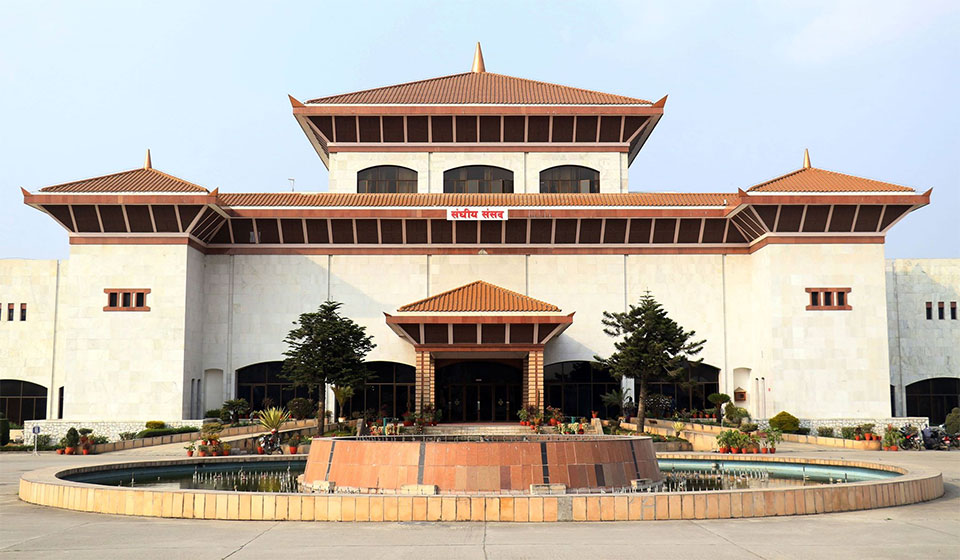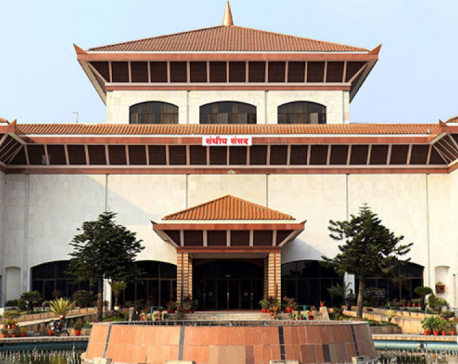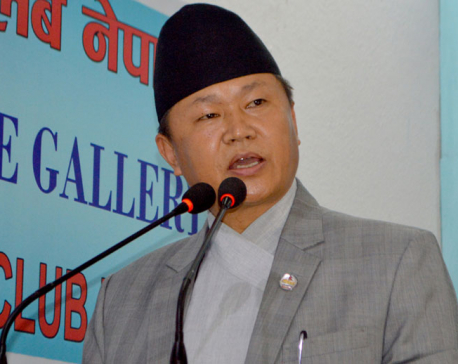
OR
Govt decision to withdraw Bill to Amend Political Parties Act fuels suspicions of potential party splits
Published On: May 18, 2024 10:00 AM NPT By: Republica | @RepublicaNepal

KATHMANDU, May 18: The cabinet meeting held on Thursday decided to approve the withdrawal of the bill introduced to amend the Political Parties Act 2073 BS. The government withdrew the bill related to political parties registered in parliament shortly after the cabinet meeting.
Spokesman at the Federal Parliament Secretariat, Ekram Giri, said that the letter for the withdrawal was registered by the law ministry on Thursday in line with the cabinet meeting.
"Government bills are withdrawn when the government wants. When the letter comes to withdraw the bill in the House, it creates an environment for withdrawal," said an official at the Federal Parliament Secretariat. An easy environment has been created for the withdrawal of the bill after the government's letter.
The government led by Prime Minister Pushpa Kamal Dahal had brought this bill to parliament. Although there is a different political coalition, the government is still led by Dahal.
The government had introduced the bill on political parties due to the absence of the Act after the Sher Bahadur Deuba-led government introduced an ordinance on political parties. The ordinance, which was aimed at facilitating the split of the CPN-UML and Janata Samajbadi Party (JSP), is now void.
In such a situation, the government should have moved this bill quickly. However, the government's move to withdraw the bill while the parliament session is in progress has raised speculation that the government is preparing to orchestrate the split of another party.
The latest move by the government has created ripples among fringe parties in parliament.
Currently, the budget session is ongoing in parliament. It cannot be considered natural for the government to withdraw a registered bill while the session is in progress. Because the JSP-Nepal split just a few days ago, there are growing speculations that other small parties will also follow suit.
Madhav Kumar Nepal, chairman of CPN (Unified Socialist), has repeatedly claimed that his party will not be divided. He has claimed that repeated attempts were made to split his party, although it is not possible to divide the party now due to existing legal provisions.
There is also controversy in the Nagarik Unmukti Party. A section of political observers argues that the government could have withdrawn the bill to add more force to the opposition that an ordinance is about to come to split these parties.
The main opposition party, NC, sees a big conspiracy in this. They suspect that the government and the ruling parties are involved in a conspiracy to split various political parties in parliament to bolster the strength of the ruling parties.
NC General Secretary Gagan Thapa expressed his suspicion that the move not only aims to prorogue the ongoing House session but also to orchestrate the split of several other parties by UML Chairman KP Sharma Oli and Prime Minister Dahal.
"There is a lot of suspicion that the CPN-UML Chairman is adamant about bringing an ordinance by ending this House session, splitting parties by playing with the ordinance, and disrupting the constitutional process itself. However, it seems that the prime minister is also part of this conspiracy," he said.
Thapa said that the withdrawal of the bill related to political parties pending in parliament for approval is a reason for doubt. "An environment is being created to bring an ordinance by withdrawing the bill on political parties under consideration in Parliament. It raises the suspicion that there is a political conspiracy and that they [ruling parties] want to say one thing and do another," he said.
The bill was repeatedly put on the agenda, saying that it should be moved through the House. Home Minister Rabi Lamichhane did not get an opportunity to move the bill forward due to the opposition of the main opposition party, NC.
In the absence of this bill, there is no law to resolve any disputes related to the parties. The JSP division can be taken as an example. In the absence of law, the Election Commission had to choose the way of rules for dividing parties. This has taken the matter to the Supreme Court.
You May Like This

Govt withdraws bill to amend Political Parties Act
KATHMANDU, May 17: The government has withdrawn the bill to amend the Political Parties Act. A letter regarding the withdrawal... Read More...

NCF asks govt to withdraw decision to hike milk price
KATHMANDU, August 18: National Consumer Forum (NCF) has asked the government to withdraw the decision to hike the price of... Read More...

Decision to withdraw support will prove fatal for Dahal: Minister Rai
KATHMANDU, July 12: Minister for Information and Communications, Sherdhan Rai on Tuesday warned that the decision of the CPN (Maoist... Read More...





Just In
- NRB introduces cautiously flexible measures to address ongoing slowdown in various economic sectors
- Forced Covid-19 cremations: is it too late for redemption?
- NRB to provide collateral-free loans to foreign employment seekers
- NEB to publish Grade 12 results next week
- Body handover begins; Relatives remain dissatisfied with insurance, compensation amount
- NC defers its plan to join Koshi govt
- NRB to review microfinance loan interest rate
- 134 dead in floods and landslides since onset of monsoon this year












Leave A Comment